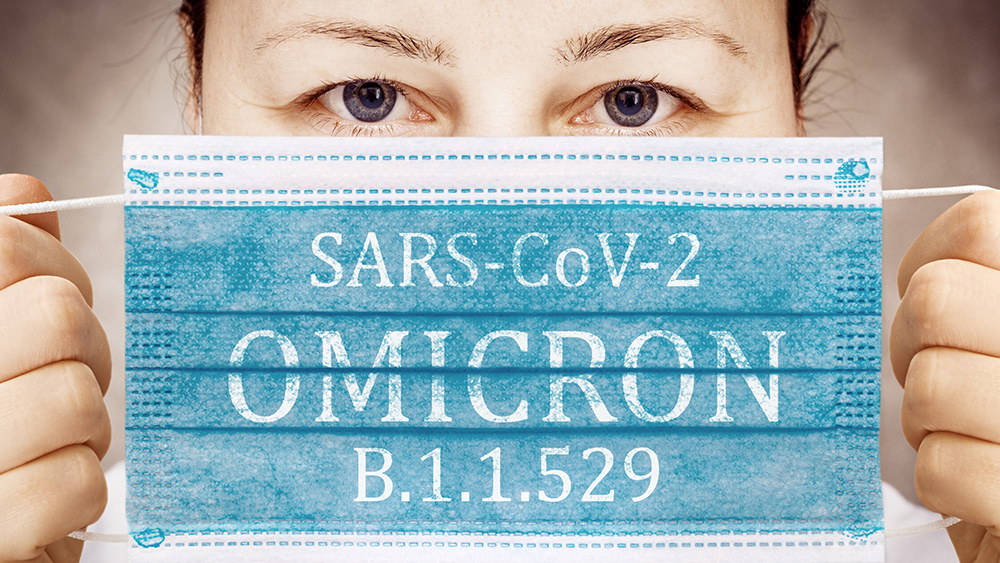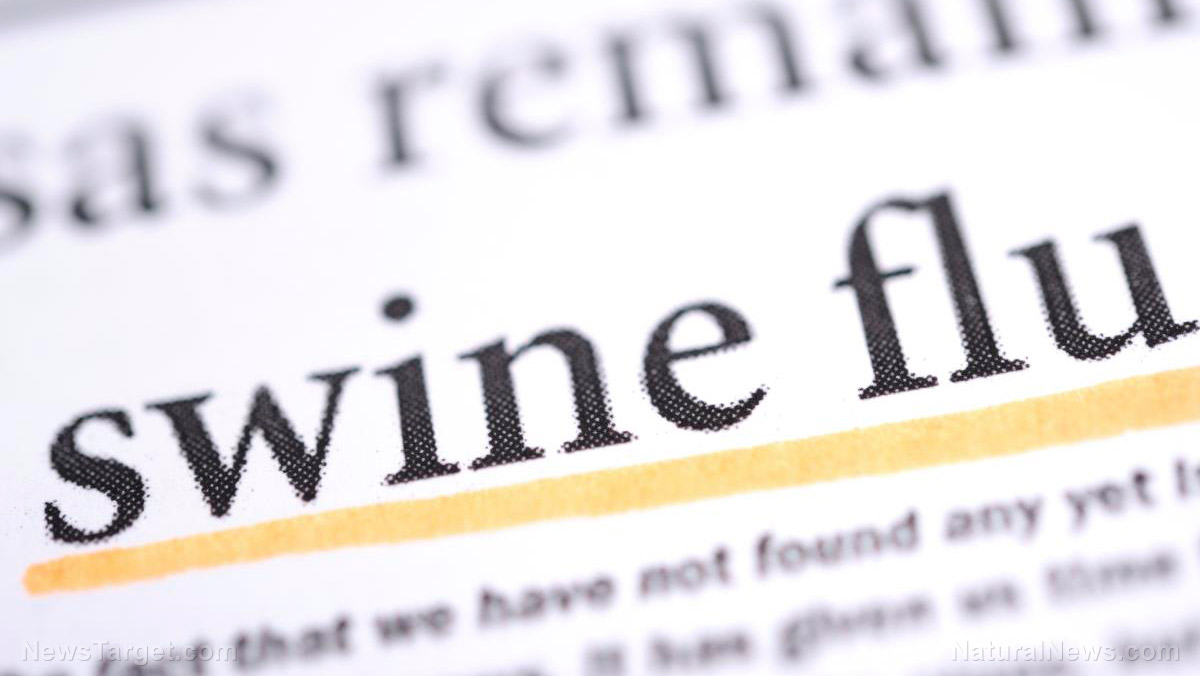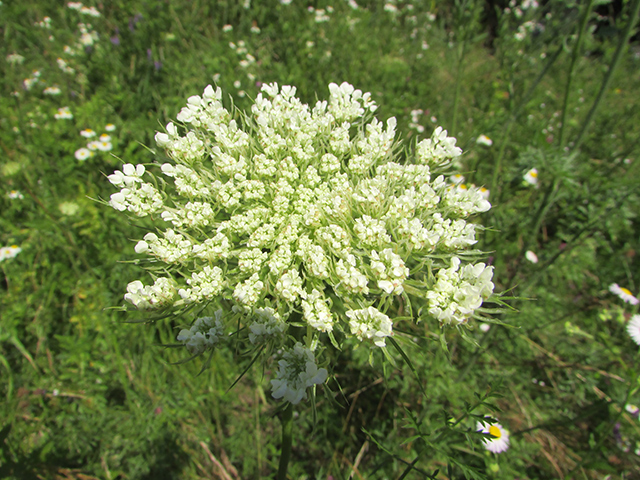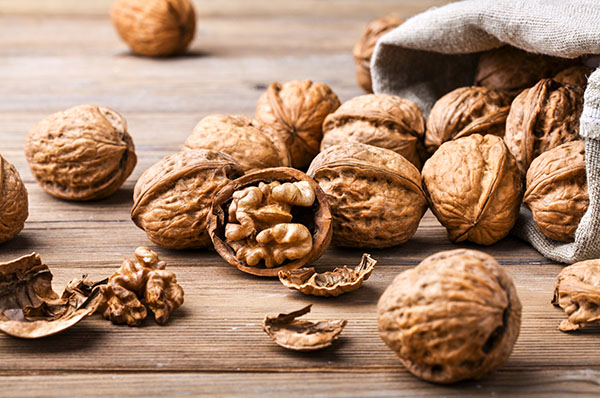Dominant 2021 COVID strain leaves millions without sense of taste and smell – but treatments are available
06/28/2023 / By Lance D Johnson

The dominant strain of COVID that plagued the world following the rollout of the covid-19 vaccines left millions of Americans without their sense of smell and taste. According to a recent study published in the Laryngoscope, an estimated 800,000 Americans permanently lost their sense of smell after infection and approximately 540,000 permanently lost their sense of taste. After recovering from the infection in 2021, another 5.2 million partially recovered their sense of taste and approximately 4.2 million partially recovered their sense of smell. Persistent mask usage, the ineffective covid-19 vaccines, and the censorship of early treatments weakened human immune responses and placed selective pressure on the SARS-CoV-2 virus, altering its original gain-of-function properties and changing how the infection spreads and attacks human immune systems.
Recovering taste and smell after COVID is important for restoring quality of life
The dominant 2021 COVID strain was able to invade and damage the olfactory epithelium. The olfactory epithelium contains specialized cells that are designed to detect smells. These smells are intricately connected to memory and emotion. When these cells are damaged, the signaling process is distorted, altering one’s perception of smell and taste. This damage can also impact one’s ability to process memory and emotions.
Furthermore, up to 80 percent of one’s taste experience is influenced by this olfactory system. When one loses their sense of taste, they tend to eat less and their quality of life suffers. These cells will typically repair after infection, but for many 2021 COVID patients, the damage and persistent inflammation continues, leading to permanent loss of taste and smell and diminished quality of life.
“Losing your sense of smell or taste isn’t as benign as you may think,” Dr. Neil Bhattacharya, a professor of otolaryngology at Mass Eye and Ear said in a press release. “It can lead to decreased eating for pleasure and, in more extreme cases, it can lead to depression and weight loss.”
These same phenomena have been reported in the Vaccine Adverse Event Reporting System (VAERS). Over 5,000 cases of anosmia (loss of smell) and over 6,000 cases of ageusia (loss of taste) have been reported after covid-19 vaccination, with over a thousand more people reporting parosmia (distorted sense of smell and taste). The spike proteins replicated by the covid-19 vaccine did not degrade in the deltoid muscle, as was promised by the vaccine manufacturers. Therefore, in many vaccinated people, the spike proteins triggered ongoing inflammation and oxidative stress to nearby cells and tissues, causing adverse events and lingering health issues. As the alleged efficacy of the vaccine waned within two months, the “fully-vaccinated” became more likely to become infected and spread a mutated strain of COVID in their community.
Treatments are available for those suffering from loss of taste and smell
There were treatment options to prevent the loss of smell and taste. There are also treatment options to help patients regain their sense of smell and taste. Dr. Pierre Kory, a critical care pulmonary specialist, administered the anti-parasitic drug ivermectin in the early stages of infection. Ivermectin helped 70 t0 80 percent of his patients, reducing viral load and preventing further oxidative damage to the olfactory nerves. The drug helped most of his patients recover from lost smell and taste faster. A 2022 study found that ivermectin binds to the spike proteins, helping the immune cells neutralize them before they do further damage throughout the body.
Many patients show improvement after getting on anti-histamines. Dr. Keith Berkowitz, a board-certified internist, believes that loss of taste and smell can be the result of mast cell activation and an excessive level of histamines. The excessive histamines activate microglial cells and can harm neurons, especially in the olfactory bulb. Antihistamines improve sinusitis and keep the inflammatory immune cells from damaging the olfactory senses.
Nasal irrigation can be used to clear unwanted debris, allergens, and harmful bacteria in the sinuses that cause inflammation and loss of smell. Aromatherapy can be used to help patients regain their sense of smell and taste. Essential oils such as eucalyptus and tea tree can help kill opportunistic microbes that can take hold after an infection and cause lingering sinus infections. After infection, vitamin D, zinc, and B12 levels are often depleted, leading to unresolved sensory problems and fatigue. One study showed that zinc deficiency is behind the loss of taste and smell associated with covid-19. Vitamin D, zinc, and B12 supplements can help shore up any deficiencies that exist after an immune system challenge. Many treatments are available to help the body recover from infection, but they are not publicized in the same way as ineffective vaccines are.
Sources include:
DocumentCloud.org [PDF]
Submit a correction >>
Tagged Under:
ageusia, alternative medicine, anosmia, anti-histamines, aromatherapy, b12, Censored Science, cures, early treatments, eucalyptus, gain-of-function, healing, health science, infections, inflammation, ivermectin, natural health, natural remedies, outbreak, oxidative stress, pandemic, sinusitis, smell, taste, vaccine damage, vitamin D, zinc
This article may contain statements that reflect the opinion of the author
RECENT NEWS & ARTICLES
HealthScience.News is a fact-based public education website published by Health Science News Features, LLC.
All content copyright © 2018 by Health Science News Features, LLC.
Contact Us with Tips or Corrections
All trademarks, registered trademarks and servicemarks mentioned on this site are the property of their respective owners.




















